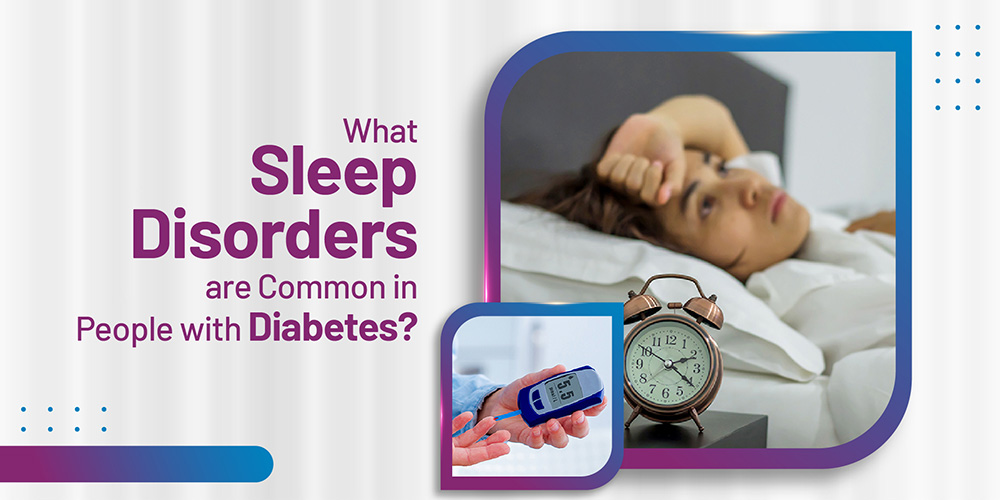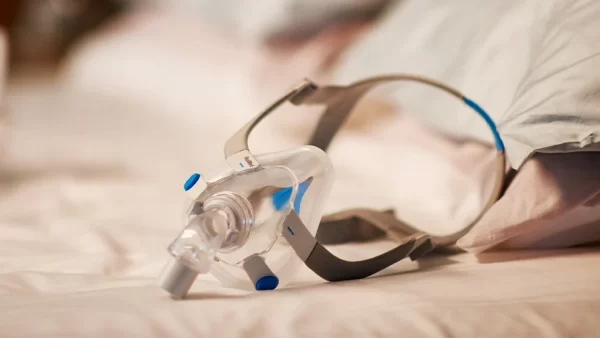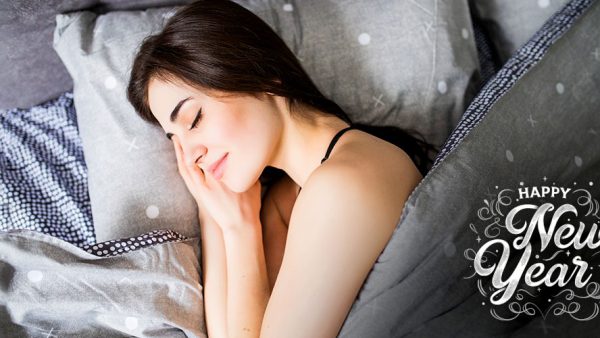Celebrated on the 14th of November, World Diabetes Day aims to raise global awareness around diabetes. The health condition occurs when your blood sugar gets too high. It happens because your body fails to produce or effectively utilize insulin to move sugar from the blood to cells for producing energy.
The theme of World Diabetes Day 2022 is ‘Access to Diabetes Care.’ Its goal is to educate people about the necessity of ongoing care and support for diabetic people because of the complications resulting from this health problem. Aside from the damage caused to the nerves, eyes, and kidneys, the health condition can also make you susceptible to developing certain sleep disorders. So, for diabetic patients who are experiencing trouble with sleep lately, here is some information on the link between the two. Here you go!
Does diabetes affect your ability to sleep?
In short, the answer to the question of whether sleep disorders and diabetes are related is yes. It is so because the latter health condition impacts your ability to rest at night. In a study conducted in the year 2012, it was revealed that sleep disturbance and diabetes are linked. Here, sleep disturbance refers to your inability to fall or stay asleep through the night.
Of course, this doesn’t mean that having diabetes necessarily means you will experience sleeplessness. But, most diabetic patients have confessed to tossing and turning in bed at nighttime. In addition, the research also revealed that sleep deprivation is a risk factor for diabetes, which can be controlled in most cases.
Which sleep disorders are linked with diabetes?
People with diabetes often toss and turn on their beds throughout the night, hoping that sleep would eventually come. However, in most cases, rest evades them. But why does this happen? Is sleeplessness a typical symptom of this condition? Are type 2 diabetes and sleep disorders related? Well, the answer to this is a little trickier than that.
Although poor-quality rest is a common symptom of diabetes, a different medical condition, namely sleep disorders, is the root cause of your restless nights.
Inhaling this essential oil is known to have several health benefits, like reducing skin inflammation, promoting hair growth, lowering anxiety, and encouraging a good night’s sleep. Experts believe its use can also help keep insomnia at bay since it brings down heart rate, temperature, and blood pressure. These effects are identical to the stages the human body undergoes before drifting off to sleep.
Most of us are aware of the soothing effects of chamomile. Its consumption is known to reduce inflammation, help with relaxation, and treat anxiety. All these outcomes also benefit sleep. To avail them, it is advised to diffuse chamomile oil in the air. While the direct effects of using this essential oil on the body temperature and rhythm are minimal, inhaling it through an air diffuser can instantly calm and relax your mind. For people who can’t sleep because of anxiety issues, the use of roman chamomile oil featuring a fresh and apple-tinged fragrance is recommended.
Although this essential oil is not as powerful a sleep remedy as lavender oil, it has its benefits. Extracted from the tropical trees found in Asia, the ylang-ylang oil helps to manage blood pressure and heart rate. It gives off a pleasant and fruity smell that soothes and calms the mind. In this way, it aids in fighting insomnia and naturally prepares the body to drift off to sleep.
Bergamot oil is known to do wonders for insomnia patients. Many people ingest it in the form of juice or extracts for its anti-inflammatory and antibacterial properties. Besides, this essential oil also reduces heart rate and blood pressure and improves mental health. These benefits make it ideal for being used as an essential oil for sleep humidifiers.
The sandalwood oil has a rich scent and promotes deep rest because of its mood-balancing property. The essential oil improves your emotional condition and helps in unwinding. This is why mixing a few drops of sandalwood when preparing sleep blends is recommended. It is a handy solution for fighting off insomnia and falling asleep.
This peppermint oil is recommended for patients who fail to drift off to sleep because of stress. It is one of the best essential oils for relaxation that features a delightful aroma that helps clear the head. Individuals who cannot sleep because of seasonal allergies or dust sensitivity are suggested its use since it can ease such symptoms efficiently. Diffusing it in the bedroom air can help relieve the nasal passages for falling asleep quickly.
Insomnia sufferers who find woodsy scents pleasing are suggested to try cedarwood oil. It induces a sedative effect because it contains a chemical compound called cedrol. One of the best solutions for being used in aromatherapy for sleep, this oil improves sleep quality in young, healthy adults and elders with dementia. Experts suggest inhaling cedarwood oil increases sleep time and reduce early morning awakenings.
Conclusion
By and large, diabetes is a chronic condition that can make your life difficult. Besides causing damage to the nerves, kidneys, and eyes, the disease can also impact your sleep and keep you from resting well. Diabetes is a risk factor for sleep disorders like insomnia, sleep apnea, and restless leg syndrome. So, if you have high blood sugar levels, get a sleep test as a precautionary measure.





Leave a comment